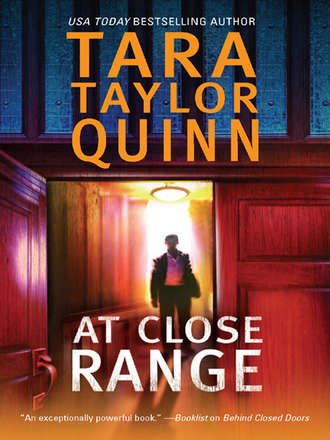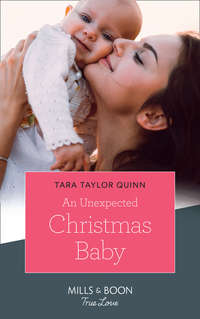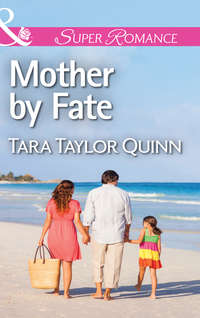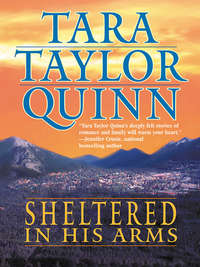
Полная версия
At Close Range
Contrary to his usual practice, Brian didn’t return any calls on the drive home. The world could wait until morning. So could the thoughts trying to worm their way into his consciousness. Losing himself in the noise blaring from his car stereo, the old Eagles hit “Take It Easy,” Brian sped along the freeway. The music reminded him of earlier days, easier times. He made it through the first song on the greatest hits CD without allowing his thoughts to take over. Soared through the next one, swerving his sleek, high-performance car in and out of traffic as though he was eighteen instead of thirty-eight. And then the speakers screamed, He was a hardheaded man…
Brian slowed down. He’d been there. Done that.
She was terminally pretty.
Terminal. There was that word again.
Back in college, he’d figured life in the fast lane meant having the money to travel to exotic places, to eat out several times a week, frequenting all the finest restaurants. Having season tickets to Broadway Across America at Gammage Auditorium and the Phoenix Symphony and being recognized in all of Phoenix’s and some of Vegas’s and L.A.’s most elite clubs.
He’d figured the fast lane was about money. And, like his father before him, he’d intended to have a lot of it.
Tonight, the fast lane meant a way to get home more quickly. It meant knowing that a little girl might have to cram a whole life into five or six years.
It meant living every moment because it might be your last.
It meant drinking to escape the sounds of shrieking metal, of Cara’s voice crying out. Of sirens. And his own wail of pain.
When “Lyin’ Eyes” came on he thought of all the women he’d known in the ten years since Cara’s death—experienced women like the one in the song escaping her rich old husband with hands as cold as ice to visit the cheatin’ side of town and the lover with fiery eyes. He hadn’t sought out married women, though he hadn’t paid that much attention to marital status, either. He’d gone strictly for mutual pleasure, mutual escape. No strings attached.
He used to imagine it was Cara’s body he was sinking into. Never once, since his beautiful wife had died in his arms at the side of the road, due to the recklessness of a teenage illegal immigrant, had he made love to a woman with only that woman on his mind. The woman, as soon as he undressed her, became nameless. A fact that didn’t endear him to anyone—particularly himself.
And as his surround-sound system crooned about coming to his senses, Brian grabbed his cell phone and dialed. There might not be a lifetime to get on with it.
“Cynthia?” he asked as his call was answered on the first ring.
“Hey! What’s up?” Cynthia’s enthusiasm took away some of the chill he felt even in the hundred-degree September heat.
“Not much,” he said, then added, “How about bringing the little guy over for a dip in the pool?”
“Sure! I’d love to. Joseph? It’s Brian! You want to go swimming?”
The polite “yes, please” he heard in the background brought a smile to his face. There’d been a tinge of excitement in the four-year-old’s tone. What a difference from the solemn, completely silent child Brian had first met at the free clinic almost a year before.
That first day, when he’d seen Cynthia there at the free clinic, chewing the nails on one hand while she rubbed her sick son’s back with the other, Brian had just wanted to help ease the burden of worry. But it wasn’t long before he’d had to pass Joseph’s professional care on to one of his trusted associates because he was seeing Cynthia as much more than his patient’s mother.
She’d been struggling financially since losing her uninsured ex-husband in a car accident the previous year and even before he’d started dating her Brian had hired her to replace the bookkeeper who’d just quit. He suggested that she go into his office in the evenings so he could watch Joseph for her and save her the cost of a sitter.
She’d readily agreed and had been keeping his books balanced to the penny ever since. Cynthia was smart. Caring. And vulnerable. She was the first woman he’d dated more than twice since Cara’s death.
“Cyn? Bring nightclothes, too.” Brian’s voice softened on that last request.
“You got it.” The response was more eager than he deserved, and just what he needed.
It was time to move on.
Hannah was not having a good day. Though she’d parked in her reserved, covered spot, right next to another judges-only covered spot, her two-year-old gold Lexus GS—originally bought for child safety but now appreciated for the luxury it afforded after a stressful day on the bench—had a key scratch marring its perfect paint job. Running from the driver’s-side mirror to the back bumper, it wasn’t a little scratch. And it wasn’t superficial. She could see down to the metal.
It happened. Everyone knew where the judges parked. And in spite of security, every once in a while one of their cars was egged. Or had its tires deflated. Two of her peers had found threatening notes during Hannah’s years on the bench. A half-dozen or so times there’d been reports of cards left on windshields by zealous reporters. Once she’d heard about a letter taped to a door; it was from a relative of a young woman about to be sentenced. She should have expected her turn to come.
Just not today.
Not when she’d had Kenny Hill and Bobby Donahue in her courtroom. Of course, she’d also spent the morning with more than fifty family members and friends of other alleged lawbreakers as well, on pretrial motions, pleas and arraignments. Any number of them could have been pissed at her.
Or maybe some local high school gang had made keying a judge’s car a requirement of new-member initiation. Hannah didn’t automatically assume that Kenny Hill or any of his “church” brethren was behind the vandalism. But she couldn’t assure herself that they weren’t.
After fifteen minutes with security, waiting while pictures were taken and listening to the older sheriff’s deputy drone on, Hannah felt a little better. She still had the ugly scratch that meant a day in the shop, a loaner that would probably smell and the loss of her insurance deductible, but apparently there’d been several other keyings in the area that were thought to be gang related. It was going to cost her. But she hadn’t been specifically targeted.
A fitting ending to the day.
Too bad she’d already agreed to meet William for dinner. As fond as she was of her former law-school classmate and fellow judge, she’d rather go straight home, turn up the air-conditioning, run a hot bath in her Whirlpool tub, then have a good soak and a cry.
He knew her name. As he felt the pressure building, felt his climax coming, Brian kept his eyes open, focusing on the woman lying next to him, moving her hips in tandem with his. Eyes closed, her mouth slightly open as she moaned, Cynthia Applegate was a beautiful woman.
“Ah, Cynthia,” he said, emptying himself into her. “Yes.” He felt her answering tremors as she came, pulses of release that contracted around him, completing an intense moment.
She sighed. And smiled. Opening her eyes.
“I love you,” she said. It wasn’t the first time.
Pressure built again—less pleasurable this time.
“It’s okay,” she continued, lifting a finger to his lips as he tried to speak. “You don’t have to say anything. I don’t expect anything from you. I just wanted you to know.”
He should speak anyway. She deserved more than the long kiss he gave her, so Brian caressed her in the way he knew she liked, bringing her to a second orgasm. It wasn’t enough. But it was a start. More than he’d been able to give any other woman.
And during the aftermath, as he lay with her, there was none of the usual letdown, and not as much of the guilt. As always, an image of Cara’s face after they’d made love appeared in his mind. Her features were hazy. Quickly replaced by another sight. His wife’s face smeared with blood. His and her own.
And then the sounds replayed themselves. Her cries as she tried to free herself from the wreckage.
And the young man’s words as he stood outside their smashed vehicle. “Won’t do no good for them to deport me. I’ll come back.”
The words were in his native tongue. But Brian had spoken Spanish fluently since college.
“Let me out!” It took him a second to realize it wasn’t his panicked, dying wife he was hearing.
Cynthia was already out of bed.
“Let me out!” Panic filled the childish voice. “Let me out!”
By that third call Brian was halfway down the hall to the spare bedroom where Joseph Applegate slept when he and his mother spent the night—something that had only happened on weekends. Occasionally.
“He’s at it again.” Cynthia’s voice also held a bit of panic as Brian caught up to her. She stood back as Brian raced to the boy, grabbing him off the chair by the window where Joseph was pulling at the blinds and pounding on the glass.
“No!” he screamed, kicking and punching, as Brian wrapped his hands around the youngster’s waist, removing him from immediate danger. “No!”
“You’re all right now, Joseph.” Brian spoke in quiet, reassuring tones, holding on to him until, spent, the boy fell limp in his arms. He handed Joseph to Cynthia.
“Shh, baby, it’s okay.” Cynthia’s voice was calmer now that she was with her son, holding him. Now that he was safely away from the window. Clothed in the robe she’d pulled on as she’d run from Brian’s room, she held Joseph to her, speaking softly but firmly.
Joseph snuggled his face into his mother’s chest, breathed a ragged sigh and settled back to sleep.
“He’s soaked,” Cynthia whispered, rocking the boy as though he weighed nothing. Once his breathing was even, she quickly laid him on the bed, changing his soiled disposable undergarment with the ease of practice. She’d been handling the boy’s sleepwalking episodes far longer than Brian had.
Brian gave the small head a professional caress. The toddler was cool to the touch. “He’ll probably sleep fine now until morning.”
“And as usual he won’t remember anything, so we still won’t have any idea what’s causing this.” She sounded tired, resigned, but worried. At Brian’s recommendation she’d taken Joseph to Dr. Roberta Browning, one of Arizona’s best pediatric psychiatrists; Brian had already run every medical test he could think of, and found nothing to explain Joseph’s symptoms.
There was no sign of internal organ illness. No sign of physical or sexual abuse.
If the lack of answers frustrated Brian, it had to be excruciating for his mother.
“Something must have happened when he was with his father.” He repeated what he’d told her before—the same thing Roberta had said. It wasn’t much of an explanation.
It was all they had. “It’s odd that he doesn’t mention the father he saw regularly,” Roberta had told Brian. Though Joseph’s parents had been divorced since he was a baby, Donald Applegate had had regular visitations until his death.
Brian had asked Cynthia about it. Other than the fact that her ex-husband had had another lover while married to her, she’d said nothing negative about her son’s father. It was obvious, at least to Brian, that she still carried feelings for the man whose life had been cut short.
That was something they had in common. Unexpectedly losing someone they loved.
Brian took one last look at the window, wondering what would have happened if it had been open—what could happen in the future, if they didn’t get things under control.
“Let’s bring him in with us just in case,” he said now, an arm around Cynthia’s shoulders as he led her back down the hall.
The boy needed security. Whatever was causing the sleepwalking, whatever was causing the bed-wetting, might never be known to them, but the symptoms could still be treated. The cure, Brian was certain, especially in one so young, was a stable, two-parent home environment. An environment like the Summerses had to offer Felicia.
An environment he could offer to Joseph and his mother.
“Have you seen the Sun News?” Hannah didn’t bother with a hello when Brian finally answered his phone at four forty-five the next afternoon. She’d just come off the bench to be handed a copy of the weekly paper by her judicial assistant. Brian’s picture took up half the front page. Hannah’s name was in the second paragraph.
“Hannah? No, I’ve had back-to-back patients since I got in this morning. To be honest, I’m not even sure what time it is. What’s up?”
Relieved that he hadn’t been broadsided, that she could break the news to him gently, Hannah silently reread parts of the article. Her protective instincts reared all over again.
“They’ve gone too far this time,” she said, pissed off and ready to take someone on. “It says here that you refused to comment.”
“Only by default. I had some bad news to deliver to the parents of a three-year-old. The reporter completely slipped my mind.”
Immediately taken back to her own experience as the parent of one of Brian’s patients, remembering the strength he’d given her when she didn’t have enough of her own, Hannah glanced away from the paper.
Kids were supposed to be free from worry, from stress and pain. Childhood was for naiveté and laughter. Playing. No responsibility.
Or so they said.
“Is the three-year-old going to be okay?”
“It doesn’t look good.”
Holding back the tears that would fall if she’d let them, tears that she’d grown adept at fighting over the past year, she looked again at the article while questions she couldn’t ask raged through her mind.
How long had the little girl been sick? What were her symptoms? How old were the parents? Were they a close family? Were there other kids? Did they have the resources for treatment? Was there any hope?
“So how bad is the article?” Brian’s question brought her out of a nightmare and into a mess.
“Bad,” she told him, because that’s how they were. Always honest. Always there for each other. Loving but never lovers. “Someone’s done a lot of talking out of turn followed up by incompetent research.”
“Okay.” His tone told her to get on with it.
“They say that there’ve been an unusual number of SIDS deaths in the valley over the past year….”
“That’s not true. Our educational seminars have had an impact already. The statistics are changing.”
“Yeah, they mention that.” Hannah’s voice dropped. Since shortly after her son’s death, she and Brian, a mother and a doctor, had been traveling around the state speaking to groups of expectant parents, offering two different perspectives but delivering the same message. There were ways to lessen the chances of SIDS. Easy ways. “Which is why it’s a concern to this reporter that there’s one doctor who’s seen an upswing in sudden infant deaths among his patients.”
“Me.”
“Right.”
His silence was difficult to take.
“He doesn’t name his source but he claims that he’s gone through public records to verify his facts.”
“Which are?”
“You have three-hundred percent more cases of SIDS than any other doctor in the city.”
Again, he said nothing.
“Is that true?”
“If every other doctor in the city averages one death a year, yes.”
“You’ve had four.”
“And you knew about all four of them.”
Yeah. She had. She just hadn’t realized…
“He says that all four of your patients were Hispanic babies.” Hannah could hardly hear the words she was speaking for the undertones in this conversation. If Brian…
But that was impossible. She’d known him since college. Had loved him like a brother. He’d been a great friend. And a great husband to her best friend, Cara. More, he’d helped Hannah adopt Carlos, had been her son’s doctor and watched over Carlos as diligently as if the baby was his own. His and Cara’s.
Cara. He’d taken her death hard.
Hard enough to quietly, gradually, unhinge him as the article implied?
“You know better than anyone how much time I dedicate to SIDS awareness, education, research and fund-raising.” Brian’s voice, lacking any hint of his usual charm, fell flat.
“Yeah,” she said, also remembering the months after the accident. The bitterness that had poured out of Brian in his darkest moments, usually after imbibing more alcohol than he’d had during even the most raucous college parties. His wife, the only really close female friend Hannah had ever had, was killed by an illegal immigrant—a young man who’d crossed the Arizona/Mexico border with his parents as a child, without paperwork and, therefore, without the means to take drivers’ training or get a license.
“The fund-raising is part of the problem.”
“How so?”
“Without some SIDS deaths, there’d be no funding.”
“Without SIDS, we wouldn’t need the funding.”
“The implication is that some of the funds we raise line your pockets.” Hannah didn’t believe it for a second. If for no other reason than because Brian didn’t need the money. That wasn’t the implication that bothered her.
“You know me better than that,” he said when she didn’t continue.
“I think he only put in that part to explain away the volunteer time you spend on behalf of SIDS victims. They can’t write an ugly exposé and have you coming off looking good.”
“So why write one at all?”
And here was the real problem.
“It talks about Cara and the accident.”
Hannah could tell by his silence that he was hurting. And she hurt with him. Even while looking for reassurance that he was as sane as anyone. As incapable of killing another human being as she was.
“There’s a picture of the car, a line about you screaming at the other driver while they tried to cut Cara free from the wreckage.”
“Which I don’t remember at all,” he said softly.
Brian had hit his head in the accident. His memories were select. The doctors had warned that he might never remember everything.
“And they talk about the trial….”
“And the fact that the kid wasn’t tested for drugs at the scene? That he got away with some misdemeanors and a few months in jail?” Even while she understood his anger, shared it, it scared her for a second.
Because she was stressed. Worn out. Not at her best.
“What’s this got to do with SIDS?”
“They imply that you’re trying to rid the state of immigrants because of Cara. They printed a picture of you, taken ten years ago, at that rally downtown….”
“For stricter enforcement of immigration laws, I remember. But this guy can’t actually think that because I support immigration patrols, I’d resort to murdering innocent children. I’m a pediatrician, for God’s sake!” Brian’s incredulity struck a chord in Hannah. Her momentary doubts dwindled into nothing—the result of a long day, a long week. A trial that still hadn’t ended.
“Crazy, huh?” she asked her dear friend. Cara’s death had changed Brian forever. Changed them both. But he wasn’t unstable. He wasn’t disturbed enough to take the law into his own hands, as the article implied.
“I’d say someone has way too much spare time. Does it say how I supposedly bring about these deaths? Or how rich I’m getting with the supposed kickback I’m getting from the SIDS fund-raising?”
“Of course not.”
“Did they mention Carlos?”
She blinked. And blinked again. She’d only had her sweet boy for eight short weeks, but what an impact he’d made on her heart. On her life. For eight weeks out of forty years she’d been what she’d always dreamed of being—a mother.
“No,” she said when she could speak. She’d accepted that her grief was going to be a permanent part of her. And had learned to live with it. “None of the children were named.”
“So the only mention of you was regarding the seminars?”
“Yes.”
“I should sue them.”
“All they did was state facts and then imply. You can’t stop that.”
“There aren’t enough sick and twisted people in the world, doing ungodly things, that they have to drum up something like this?”
“Sick and twisted is too commonplace. The Sun News is always looking for the big angle. The story no one else has.”
It was going to be okay. The story was just that. A story. She’d overreacted.
“I wouldn’t hurt a child for anything. Not even the son of the man who killed my wife.”
“I know that.”
“I loved Carlos.”
“I know.”
“I’m sorry this came up now. You didn’t need it. I should’ve remembered the damned call. I probably could’ve prevented the whole thing.”
“Or not. You know how these people are. They had some interesting coincidental facts and that’s all they need to sell papers.”
“I don’t understand why anyone reads that crap.”
“Makes their lives seem better, I guess,” Hannah said, not wanting to hang up. On days like this she longed to be back in college when she and Cara and a few others had all lived in the same block, sharing life’s ups and downs. “You know, they see someone worse off than they are and think they have it good.”
“I hate seeing you hurt.”
“The feeling’s mutual.”
“I’ve had negative press before,” he said, sounding as tired as she felt.
So had she. Most recently the previous week when a certain unnamed reporter thought she’d been too lenient in sentencing a girl convicted of vehicular manslaughter in a hit-and-run.
“If there’s a drop-off in your patient load you can claim damages…”
“That would have to be a drop-off in my waiting list,” he said with more weariness than pride. “The accusations are ludicrous and while some people will believe anything, I have to hope this article’s going to generate more awareness of SIDS. It might actually help save a few lives.”
Trust Brian to come up with a positive spin. A fix. He was the ultimate fixer. Bodies. Minds. Hearts.
He spent his entire life fixing—as a means of escaping the things that couldn’t be fixed?
No matter how many lives he saved, he’d never be able to bring back the wife who’d died in a car he’d been driving.
“How’s the trial going?” he asked and Hannah was glad he wasn’t ready to hang up, either. It had been a couple of weeks since they’d talked and she’d missed him.
“Not great.” Glancing at the file in front of her, the one that was thicker and far more bothersome than the rest of the stack her JA had left on her desk, she said, “Based on statements made by the defense, the state, who’d already rested, moved to admit testimony from the victim of a crime the defendant was convicted of as a juvenile.”
“I thought they couldn’t bring in prior convictions because it’s prejudicial.”
She smiled, loving the fact that Brian paid enough attention when she talked about her job to pick up on the basics.
“Generally that’s correct.” Opening the file, she stared at Kenny Hill’s mug shot. And then let the folder drop shut. “But in this case, the victim of the previous crime can give information relevant to a claim the defense has made on this charge. Had the defense not made the claim, this door wouldn’t have been opened.”
“So what’d you do?”
“I took it under advisement.” Which meant she wouldn’t be getting any sleep tonight. “I told the attorneys I’d have a ruling for them by ten in the morning.”
“Do you know what you’re going to do?”
“I think so.” Still, she couldn’t act rashly. She needed to mull over all the angles. To research. To make sure. “I don’t want this case losing on appeal.”
“It’s a capital case, right? If he’s convicted isn’t it pretty much a given that it’ll be appealed?”
“Yep.”
“I don’t envy you.”
Thinking about his young patient who didn’t have much hope of a future, about the ones he lost and the grief he suffered for each of them, Hannah shook her head. “Some days, I don’t envy you your career, either.”
“I’d suggest dinner or a stiff drink, but I’ve got…to get home.”
His hesitation, accompanied by a strange tone in his voice, piqued her interest. “Why’s that?”











